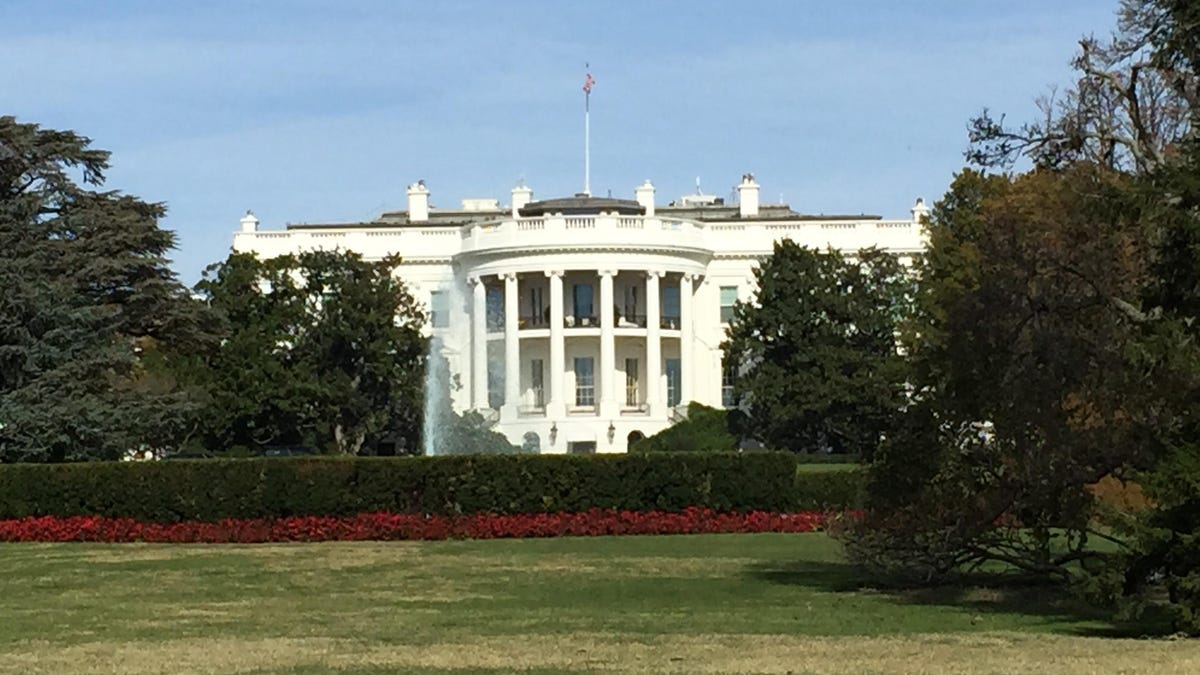White House aides advising Trump to veto Dems' net neutrality bill
The "Save the Internet Act" is likely to get the green light in the House this week, but it will be a tougher battle in the Republican-led Senate.

President Trump's aides say they'll tell him to veto the Democrats' "Save the Internet Act."
President Donald Trump's advisors say they'll advise him to put the kibosh on a bill Democrats have crafted to reinstate Obama-era net neutrality protections, if the bill ever makes it to his desk.
The Office of Management and Budget on Monday sent out a statement saying it would "strongly oppose" HR 1644, the "Save the Internet Act," which codifies the controversial 2015 net neutrality rules, according to a statement sent to lawmakers sponsoring the legislation. OMB, which administers the federal budget and advises the president on how to run executive branch agencies, made the letter available in a tweet.
The statement was sent the day before the House of Representatives, controlled by Democrats, is expected to vote on the bill. HR 1644 would prevent broadband providers from blocking or throttling access to the internet and would prevent these companies from charging fees to access the internet faster. Trump's FCC dismantled these rules in a 2017 vote, arguing that the rules had stifled investment because the rules imposed utility-style regulation on the internet.
OMB Statement of Administration Policy *Update*:
— OMB Press (@OMBPress) April 8, 2019
H.R. 1644, Save the Internet Act of 2019
→ https://t.co/HyzawKeR7d pic.twitter.com/StwJwFMGg9
OMB said in its statement that the legislation would nullify the FCC's effort to restore a "light touch" approach to regulation and would tie the hands of the FCC to adapt its regulation in the future.
"Last year, the FCC returned to the light-touch regulatory scheme that enabled the internet to develop and thrive for nearly two decades by promoting internet freedom and encouraging network investment," it said.
The letter went on to say that if the bill was passed, it would undermine gains in broadband download speeds and fiber deployments experienced in 2018.
"If HR 1644 were presented to the president, his advisers would recommend that he veto it," the letter concludes.
The bill is expected to pass the Democrat-controlled House, but it faces an uphill battle in the Senate, where Republicans hold a majority. That said, Democrats were able to pass a Congressional Review Act resolution in the Senate last year that would've repealed the FCC's order to dismantle the 2015 rules.
Whether Trump will take the advice of the OMB is anyone's guess. He hasn't said much publicly about net neutrality, although he's been a big proponent of deregulation in general.
Last month, Rep. Mike Doyle, a Democrat from Pennsylvania, who introduced the bill, told CNET he didn't "see any reason he'd veto it." He continued that net neutrality is not a partisan issue, and he said that most Americans support the rules.
"I don't know the president's personal views on net neutrality," he said. "I would assume that like most Americans he's for it ... The only place this bill is controversial is in Washington, DC."
Doyle didn't immediately respond to a request for comment on the OMB's statement.
But Republicans say the bill gives far too much power to the Federal Communications Commission, which they fear could result in the government setting broadband rates.
Republicans, like Rep. Greg Walden of Oregon, complained during debate in the Energy and Commerce Committee markup of the bill that the Democrats' solution was not something that most Americans support. He called on colleagues to come up with a compromise.
"This, my friends, is not the net neutrality that people want," he said. "It's actually more government socialism and frankly it's worse."

